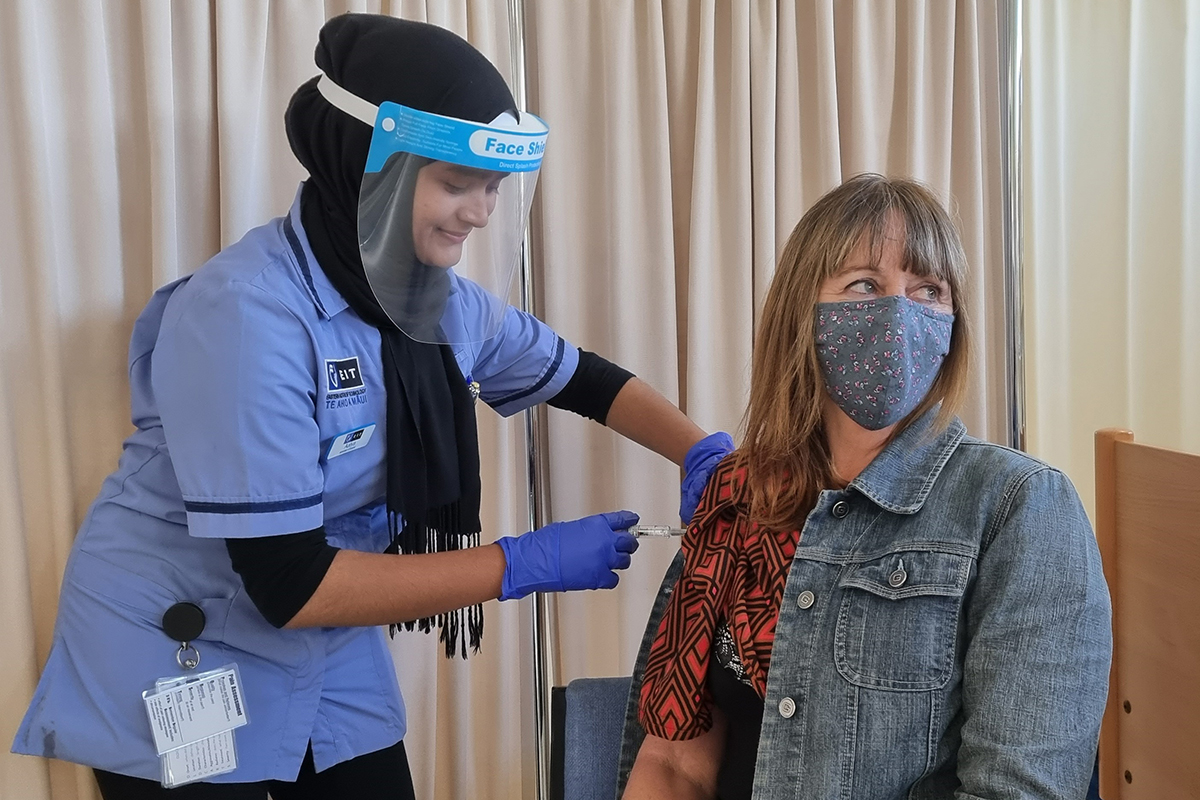Pro-active thinking by EIT’s nursing school has led to more than 100 third-year nursing students entered into the provisional vaccination training programme.
Already, 45 students have earned provisional vaccinator authorisation, with many of them working at COVID-19 vaccination clinics across the region. Another 49 students are in the process of completing the qualification, while past students who completed the training last year have since qualified as registered nurses and are also working at various vaccination clinics within the community.
Clare Buckley, Head of EIT’s School of Nursing, says: “The School’s lecturers who teach the Primary Health Care course, Lizzy Mackenzie and Teresa Doran, were incredibly proactive and forward-thinking in embedding the vaccination training into the Bachelor of Nursing programme so early on.”
Pre-pandemic only registered nurses and pharmacists with additional specialised training were authorised to administer vaccinations. However, last year, IMAC, the nationwide organisation based at the School of Population Health at The University of Auckland responsible for providing vaccination training for health professionals, made their online training available to student nurses. And EIT jumped at the opportunity.
How hard is it to jab?!
Nursing students must complete IMAC’s Provisional Vaccinator Foundation Course, consolidating this with face-to-face training from the HBDHB’s immunisation team to help them hone their skills. They then must exhibit their clinical competency through a peer assessment process facilitated by primary health care providers, enabling them to complete the final steps of their training and become authorised as provisional vaccinators.
In addition to the training, the students are also required to complete an advanced certificate in cardiopulmonary resuscitation (CPR), a prerequisite to becoming a vaccinator. The HBDHB delivered the CPR training at the Hawke’s Bay Campus in Taradale free of charge, removing cost barriers for the students. Team effort!


Just asking. Do these traine nurses get paid to carry out this service as I know from family experience they were not going to be paid to be assist.